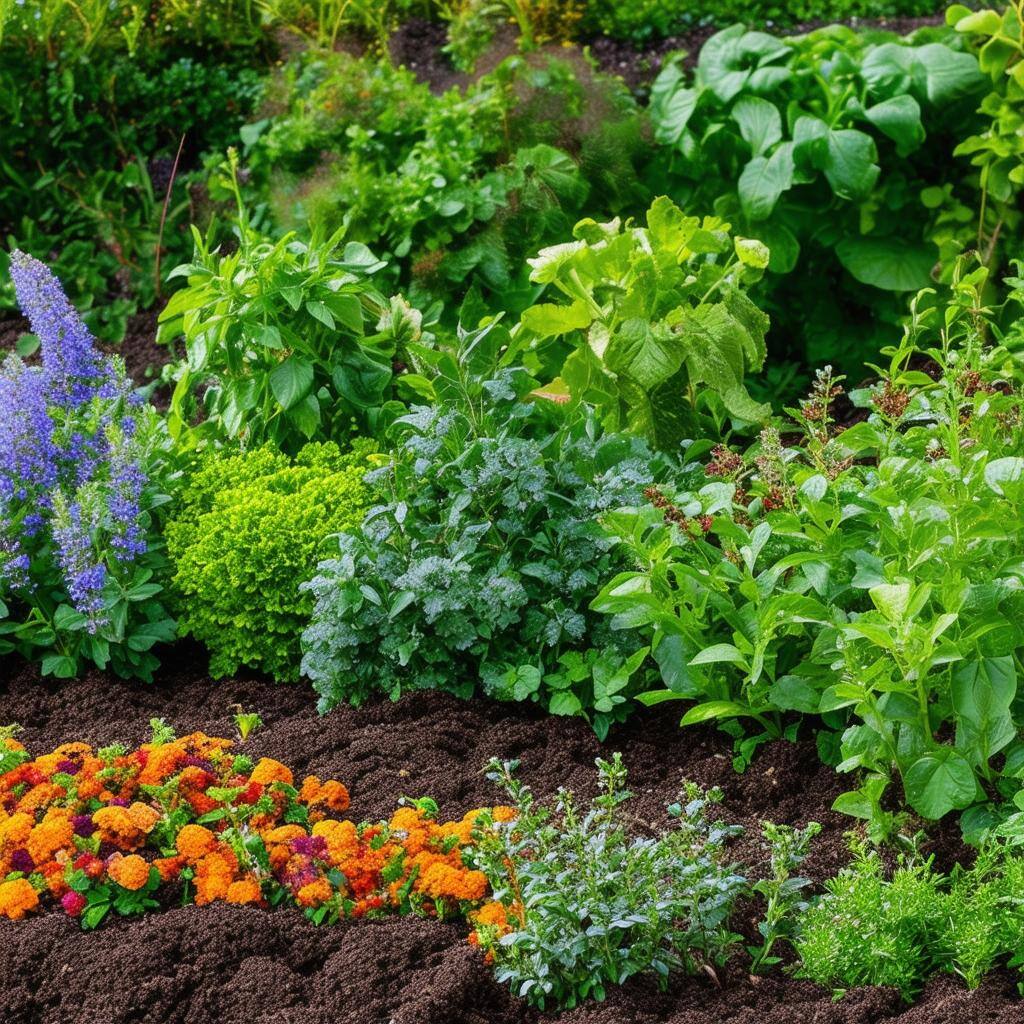Boost Your Garden with These Natural Soil Adjuncts
Introduction
In the quest for a verdant and bountiful garden, the vitality of the soil stands paramount. Embracing natural soil amendments not only enriches the earth but also fosters sustainable gardening practices. This exploration delves into various organic adjuncts that can transform your garden into a thriving oasis.
Compost: The Foundation of Fertility
Compost, often hailed as "black gold," is the cornerstone of fertile soil. It enhances soil structure, augments nutrient content, and bolsters microbial activity. Creating compost involves the decomposition of organic materials such as kitchen scraps, yard waste, and leaves. To produce high-quality compost, maintain a balanced mix of green (nitrogen-rich) and brown (carbon-rich) materials, ensure adequate moisture, and turn the pile regularly to facilitate aeration. Once matured, apply compost by incorporating it into the topsoil or using it as mulch to invigorate plant growth.
Green Manure: Cover Crops for Soil Enrichment
Green manure refers to the practice of growing specific crops, known as cover crops, to improve soil fertility and structure. These crops, such as clover, vetch, and ryegrass, are sown during fallow periods and later incorporated into the soil. They enhance organic matter content, fix atmospheric nitrogen, suppress weeds, and prevent erosion. To effectively utilize green manure, select cover crops suited to your climate and soil conditions, allow them to grow until they reach peak biomass, then cut and till them into the soil at least a few weeks before planting the main crop.
Bone Meal: A Phosphorus-Rich Supplement
Bone meal, a finely ground animal bone product, serves as an excellent source of phosphorus and calcium. Phosphorus is vital for root development, flowering, and fruiting in plants. Apply bone meal by sprinkling it into planting holes or broadcasting it over garden beds, followed by mixing it into the soil. Be cautious not to overapply, as excessive phosphorus can lead to nutrient imbalances and environmental concerns. A soil test can help determine the appropriate application rate for your garden.
Wood Ash: Alkaline Amendment with Caution
Wood ash, the residue from burning hardwoods, contains potassium, calcium, and trace minerals. It acts as a liming agent, raising soil pH and reducing acidity. However, its high alkalinity necessitates careful use. Before applying wood ash, conduct a soil pH test to ensure your soil requires pH adjustment. Apply wood ash sparingly, at a rate of about 1.5 kg per 9 square meters, and avoid using it around acid-loving plants like blueberries and azaleas. Always wear protective gear when handling wood ash to prevent skin irritation.
Coffee Grounds: Repurposed Organic Matter
Used coffee grounds are a valuable addition to the garden, offering nitrogen, potassium, and other trace elements. They improve soil structure and attract beneficial earthworms. However, fresh coffee grounds can be acidic and may inhibit seed germination. It's advisable to compost coffee grounds before application or use them as a thin mulch layer. Mixing coffee grounds with other compost materials balances their carbon-to-nitrogen ratio, enhancing decomposition and nutrient availability.
Epsom Salt: Magnesium and Sulfur Source
Epsom salt, chemically known as magnesium sulfate, provides essential magnesium and sulfur—key components for chlorophyll production and enzyme function. Dissolve one to two tablespoons of Epsom salt in a gallon of water and apply it as a foliar spray or soil drench during the growing season. Use it judiciously, as excessive application can lead to nutrient imbalances. It's particularly beneficial for plants like tomatoes, peppers, and roses, which have higher magnesium requirements.
Seaweed Extracts: Marine-Derived Nutrients
Seaweed extracts are rich in micronutrients, amino acids, and growth hormones that stimulate plant development and enhance stress tolerance. They can be applied as foliar sprays or soil drenches. Regular use of seaweed extracts promotes robust root systems, improves nutrient uptake, and increases resistance to pests and diseases. They are suitable for a wide range of plants, including vegetables, fruits, and ornamentals.
Animal Manures: Traditional Soil Boosters
Animal manures, such as those from cows, horses, and chickens, have long been esteemed for their ability to enhance soil fertility. They provide a rich source of organic matter and essential nutrients, including nitrogen, phosphorus, and potassium. However, the nutrient content of manure can vary significantly based on factors such as animal species, diet, and manure handling practices. For instance, poultry manure typically contains higher levels of nitrogen compared to cow or horse manure. To ensure safety and effectiveness, it's crucial to compost manure properly before application. Composting helps to eliminate pathogens and weed seeds, stabilizes nutrient content, and reduces the risk of nutrient runoff. Apply composted manure by spreading it evenly over garden beds and incorporating it into the topsoil. This practice improves soil structure, enhances moisture retention, and promotes the proliferation of beneficial microorganisms, all of which contribute to a thriving garden ecosystem.
Conclusion
Integrating natural soil amendments into your gardening routine fosters a resilient and productive landscape. Each amendment offers unique benefits, from enriching soil fertility to enhancing plant health. By thoughtfully selecting and applying these organic materials, you cultivate a harmonious environment where plants can flourish. Embrace these natural solutions to elevate your garden's vitality and sustainability.




